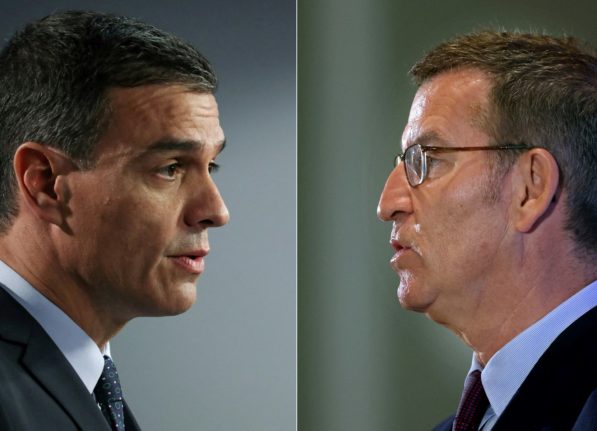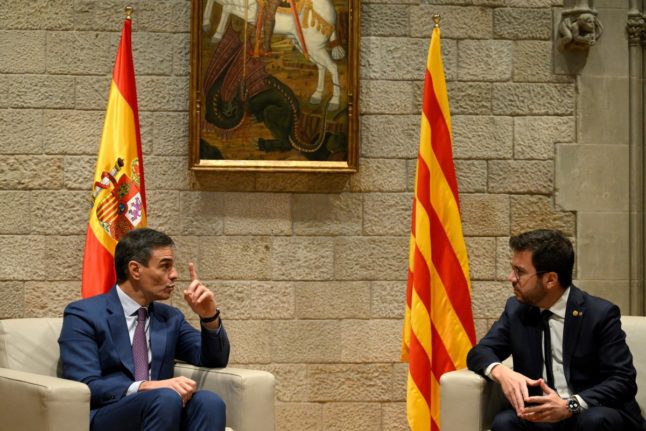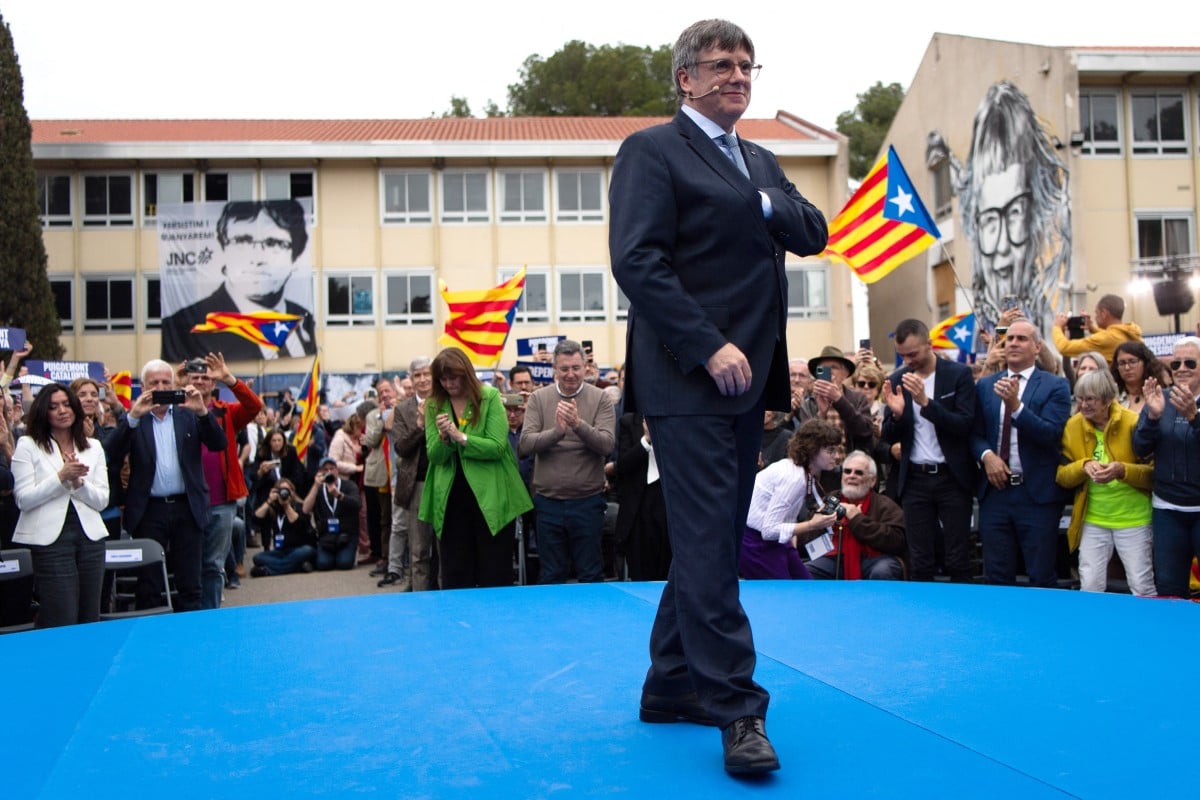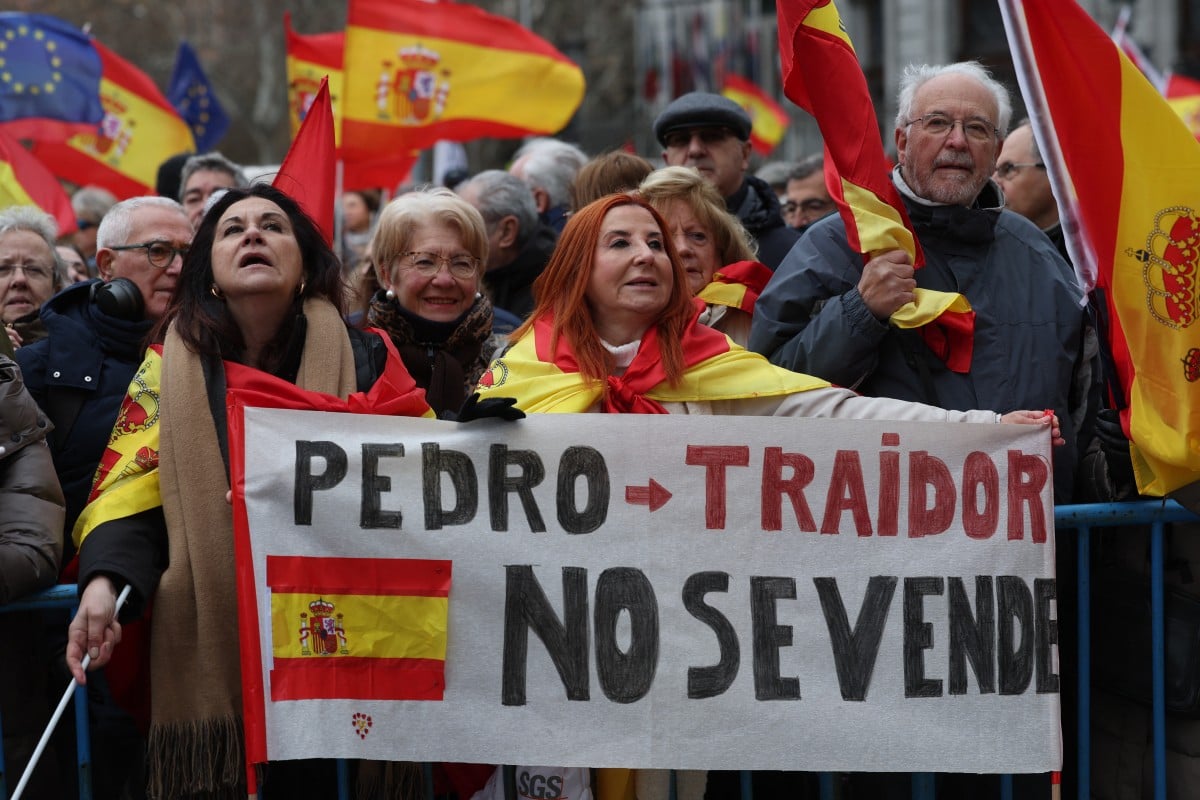The case hit the headlines in February after police arrested several people in connection with a kickbacks scandal, one of whom was a close aide to a former minister and key ally of Prime Minister Pedro Sánchez.
But as the probe has deepened, the right-wing Popular Party (PP) has demanded the resignation of parliamentary speaker Francina Armengol, who holds the third-highest office in Spain after the king and the prime minister.
READ MORE: Spain’s Speaker of the House embroiled in face mask corruption case
The scandal emerged on February 21st with the arrest of Koldo García, a close adviser to José Luis Ábalos, who served as transport minister from 2018-2021 and a key member of Sánchez’s Socialist party.
Garcia is suspected of being a central player in a scheme that let a small, previously unknown firm, Soluciones de Gestión (Management Solutions), obtain contracts worth €53 million ($57.5 million) to supply masks to various public authorities between March and June 2020 at the start of the pandemic.
Those contracts allegedly generated kickbacks worth €9.5 million.
READ ALSO: What is Spain’s ‘Caso Koldo’ corruption scandal all about?
Since his arrest, the media, notably right-leaning outlets, have run non-stop coverage of the so-called “Koldo affair”.
With more revelations emerging daily, the scandal has put the government on the back foot as it faces a string of increasingly harsh attacks from the right.
Although Ábalos was not initially implicated in the affair, the Socialist party asked him to stand down as an MP to take “political responsibility” for a scandal that occurred on his watch.
But when he refused, saying it would be seen as “an admission of guilt”, they suspended him pending expulsion.
‘You covered it up!’
It has since emerged that the investigating judge believes Ábalos acted as an “intermediary”.
Ábalos was replaced as transport minister during a 2021 government reshuffle, and the PP has claimed his removal showed that Sanchez was aware of the scandal and had sought to sideline him.
“You knew about it and you covered it up!” PP leader Alberto Núñez Feijóo accused Sánchez last week, without offering any proof.
And the party has also upped the ante over contracts the company signed with two of Spain’s 17 regions, both governed at the time by the Socialists: one with the Canary Islands, worth €12.2 million and a second with the Balearic Isles, worth €3.7 million.
Ángel Victor Torres, who headed the Canary Islands regional government at the time, is now territorial policy minister and the former regional head of the Balearic Isles is Armengol, the current parliamentary speaker.
The PP has demanded to know how the Balearics administration could have awarded such a large contract to a previously unknown company, which had supplied masks that were not of the quality they had paid for.
On Monday, the PP demanded Armengol resign, prompting her to lash back a day later.
“I have never, ever instructed anyone in my governments to hire one company or another,” she said on Tuesday, accusing the opposition of “crossing every red line”.
But her words did little to silence the PP whose spokesman Miguel Tellado once again insisted that she “resign her post as soon as possible”.
Also Monday, the European public prosecutor’s office said it would be investigating the two contracts given that the masks were bought with EU funds.
Spanish media reports said the first casualty was likely to be Álvaro Sánchez Manzanares, who heads the public body that manages the ports and paid the firm at the heart of the affair €20 million for eight million masks.
He was expected to be removed from his post on Wednesday following a decision by the transport ministry.
The case is particularly sensitive for Sánchez, who took power in 2018 following a huge corruption scandal that brought down Spain’s right-wing government, and has since prided himself on the integrity and transparency of his administration.





 Please whitelist us to continue reading.
Please whitelist us to continue reading.
Member comments